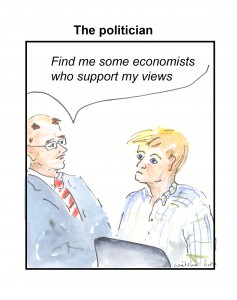At the end of last week I did a talk based on the [amazon_link id=”0691156298″ target=”_blank” ]Economics of Enough[/amazon_link] at the Netherlands Environmental Assessment Agency (PBL) followed by a workshop at the Netherlands Scientific Council for Government Policy (WRR). It’s always interesting to present to new audiences because of the varying expertise and viewpoints they bring, and it also gave me a bit of an insight into the institutional structures of government in a country I don’t know all that well.
[amazon_image id=”0691156298″ link=”true” target=”_blank” size=”medium” ]The Economics of Enough: How to Run the Economy as If the Future Matters[/amazon_image]
The themes from the book I highlighted in this case were: (a) that there is a challenge of sustainability in several domains, not just the environment. After all, the financial system was literally unsustainable and stopped working. Addressing one element is likely to involve the others, because there is a common thread in the lack of attention paid to the claims of the future; and (b) that economists and other experts need to do a far better job in measuring stocks of assets as well as flows and telling in an accessible way the tale of the extent to which current consumption has involved running down natural capital and building up financial and other debts.
The audience asked lots of perceptive questions, and challenged parts of my talk – especially my contention that ‘zero growth’ is neither desirable nor possible. So many people think of GDP growth as purely material – more designer handbags and big cars – whereas it is largely intangible in the advanced economies and anyway much more about innovation, new services and products, than about stuff. But this is a debate where environmentalists and economists are likely to continue to disagree. One of my interrogators, Wietske ter Veld (a local and regional politician and teacher of environmental sciences) kindly sent me her take on economists – and politicians, below. I would have to agree with her that we’ve got a long way to go on the political economy of policies to achieve long-term rather than short-term aims.

© Wietske ter Veld
